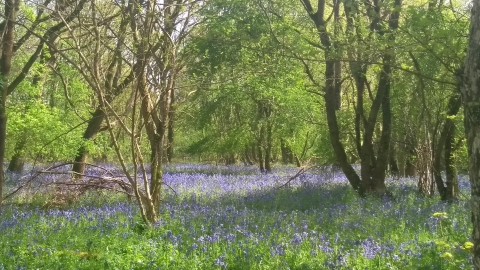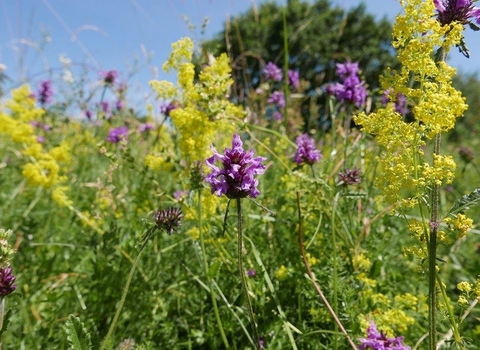Partial Closure: We apologise for any inconvenience caused and thank you for your patience and co-operation. The decision to restrict general access to this section of the wood is to minimise damage to this sections paths and flora. part of the woodland is still freely accessible through the Upwood Meadows facing entrance for you to enjoy. We have the best interests of the wood at heart and hope you can understand the necessity of our decision.

Lady's Wood - Sophie Baker
Lady's Wood
Know before you go
Dogs
When to visit
Opening times
Open at all timesBest time to visit
SpringAbout the reserve
Ancient in origin, historically Lady's Wood was managed as traditional coppice although many trees were felled in 1951. Some trees were left lying in the wood and now provide a marvellous habitat for insects and fungi.
During April into May the wood becomes resplendent with the display of bluebells. Lesser celandine, greater stitchwort and dog's mercury will also be seen.
Many birds have been recorded at Lady's Wood, including tawny owl and three species of woodpecker - green, lesser spotted and great spotted.
Additional information
- Scroll down to see the reserve boundary. Please note the boundary map is for indication purposes only and does not show the Wildlife Trusts definitive land boundary.
FOR ANY MEDIA ENQUIRIES PLEASE CONTACT OUR COMMUNICATIONS TEAM: communicationsteam@wildlifebcn.org or 01954 713500 and ask for comms team.
Species
- Blackcap
- Fieldfare
- Green woodpecker
- Redwing
- Tawny owl
- Turtle dove
- Whitethroat
- Yellowhammer
- Brimstone
- Orange-tip
- Peacock
- Azure damselfly
- Blue-tailed damselfly
- Roesel's bush-cricket
- Adder's-tongue fern
- Bluebell
- Common hawthorn
- Crab apple
- Dog's mercury
- English elm
- Great burnet
- Greater stitchwort
- Lesser celandine
- Midland hawthorn
- Wild garlic

